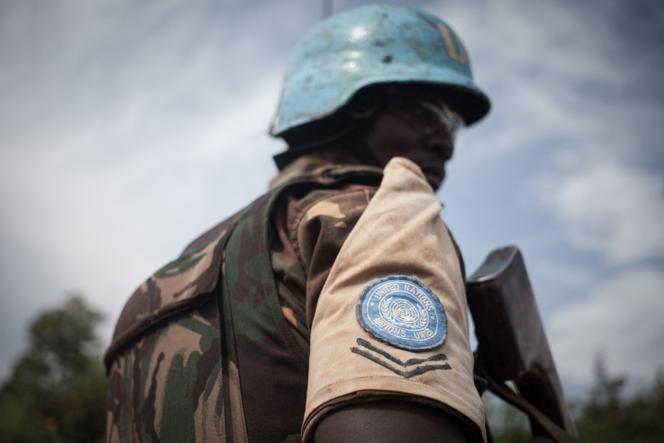


Speaking in Bangui, the capital of the Central African Republic, Jeanne's eyes (all the victims' first names have been changed) flashed with anger and a sense of injustice as she recalled one morning in May 2023. She had just sold some fruit and vegetables to a Rwandan peacekeeper, who invited her to his base to discuss paying off a debt. "While we were talking about payment, he touched my breasts and buttocks," she said in a low voice. "He said, 'You're not going out today, you're coming with me.' He put a grenade on the table before adding, 'It's either sex or death.'"
Shortly after suffering this rape, Jeanne, still in shock, approached two peacekeepers at the entrance to the base to report her assault and ask for help. She was met with indifference from one and laughter from the other. Since then, the woman in her 30s hasn't felt safe enough to report the crime committed against her. "If I haven't gone to see the MINUSCA [the UN peacekeeping mission in the Central African Republic], it's because I don't know who to turn to, but also because I'm scared. They say their peacekeepers have come to protect us, but they rape us, so what can we do?"
The MINUSCA has already, on several occasions, been accused of sexual exploitation and abuse. Having arrived in the country in 2014, against a backdrop of bloody civil war, the United Nations mission has, since 2016, effectively taken over for the French military operation "Sangaris," which had been launched while the conflict was raging, at the end of 2013. While it now claims to have systems in place to prevent and respond to abuses, the MINUSCA's peacekeepers have continued to commit sexual assaults amid a widespread atmosphere of indifference. According to reports from several victims and local NGOs, many women have not filed a complaint for fear of reprisals, not knowing who to turn to, or doubting that their attackers would be prosecuted.
According to Malick Karomschi, president of the Muslim Organization for Innovation in the Central African Republic (OMICA, an NGO that supports victims of sexual violence), cases of abuse are "constant, even in Bangui," and many women have preferred not to report them to the MINUSCA. "When they talk about it among themselves, the victims think it's useless. What can I tell them?" he said, with frustration. "It's not as if I can prove to them that the MINUSCA can help them."
Faced with these accusations, the MINUSCA has declined a request for an interview with its top official, Valentine Rugwabiza, and opted to send its answers as an email, signed by an anonymous spokesperson and sent to The New Humanitarian, a partner in this investigation, which has published the full investigation on its website, in English. In the email, the UN spokesperson states: "The risk of misconduct remains high in MINUSCA, in part because of an environment compounded by many vulnerabilities, including poverty, illiteracy, varying levels of access to information and the normalization of sexual and gender-based violence as well as limited access and a lack of basic public infrastructures, services, and institutions in certain areas."
You have 69.13% of this article left to read. The rest is for subscribers only.
